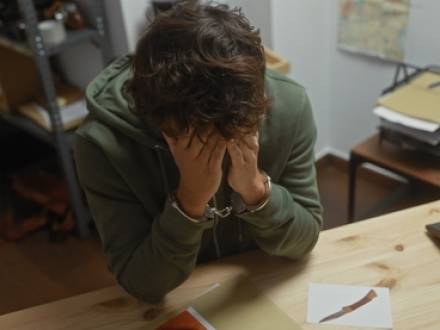Free Consultations 512-474-2222
512-474-2222
Contact Our Firm
The use of the Internet or this form for communication with the firm or any individual member of the firm does not establish an attorney-client relationship. Confidential or time-sensitive information should not be sent through this form.
I have read and understand the Disclaimer and Privacy Policy.

How Can Mental Health Issues Impact My Texas Criminal Case?
 Mental health can play a significant role in criminal defense cases in Texas. Mental health challenges can influence every aspect of the process, from criminal intent to arrest and trial. If you are facing criminal charges and suffer from mental health issues, an experienced Texas criminal defense attorney can help you navigate the challenges and ensure that your rights are protected.
Mental health can play a significant role in criminal defense cases in Texas. Mental health challenges can influence every aspect of the process, from criminal intent to arrest and trial. If you are facing criminal charges and suffer from mental health issues, an experienced Texas criminal defense attorney can help you navigate the challenges and ensure that your rights are protected.
What Role Does Mental Health Play in Criminal Cases?
Mental health conditions like depression, bipolar disorder, schizophrenia, PTSD, and anxiety can affect behavior. In some cases, these types of conditions can contribute to actions that lead to criminal charges. For example, someone experiencing a psychotic episode could act in ways they otherwise would not if they were not suffering or receiving proper treatment for their condition.
While mental health issues are not an excuse for criminal behavior and should not automatically remove liability, their impact on a person’s actions can offer important context in a fair defense.
How Can Mental Health Affect Legal Outcomes?
When mental health issues are present, they can impact a case in several ways:
-
Competency to stand trial: If the defense can demonstrate that the defendant is mentally incapable of understanding the charges and assisting in his defense, legal proceedings can be suspended. The defendant might be sent for treatment before standing trial to restore competency, and if treatment is unsuccessful, a trial might never happen and there will be no conviction.
-
Pleading insanity: Texas law allows for an insanity defense if the defendant can prove he did not understand that his actions were wrong due to a severe mental illness. This defense is rare and challenging to prove, but it can lead to a verdict of not guilty by reason of insanity.
-
Mitigating factors: Mental health can be used as a mitigating factor even if it does not meet legal standards for an insanity defense. This means the court might consider the defendant’s mental health when making sentencing decisions, which could lead to reduced penalties.
-
Alternative Sentencing: In some cases, defendants with mental health conditions qualify for alternative sentencing programs, such as mental health courts or treatment programs, instead of jail time.
How Can Mental Health Be Incorporated into My Defense?
Qualified lawyers can incorporate mental health issues into their defense strategy in several ways. First, they will gather evidence of the condition, including medical records, therapy notes, and expert evaluations demonstrating how mental health played a role in the case. Next, they can work with experts - for example psychiatrists, psychologists, or social workers - who can provide testimony to support the defendant’s claims. Last, they can advocate for treatment and other alternatives to incarceration, to help the defendant get the help he or she needs to prevent similar issues in the future.
Schedule a Free Consultation with an Austin, TX Criminal Defense Lawyer
If you are facing criminal charges and dealing with mental health challenges, this challenge is not something you need to handle on your own. A dedicated Georgetown, TX criminal defense attorney who understands the complexities of these cases and can fight hard to protect your rights. Call Morales Law Office, Attorneys at Law, PLLC. at 512-474-2222 to schedule a free consultation and learn more about how the services we offer can benefit you.




